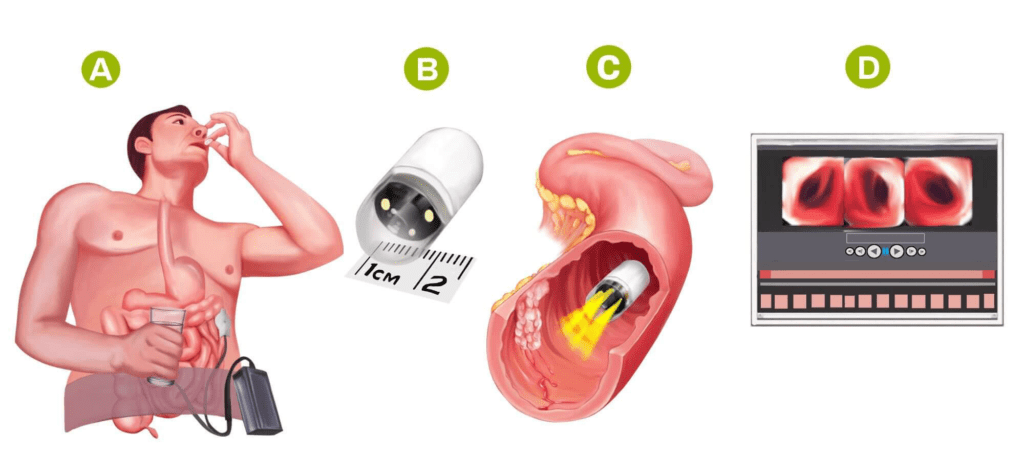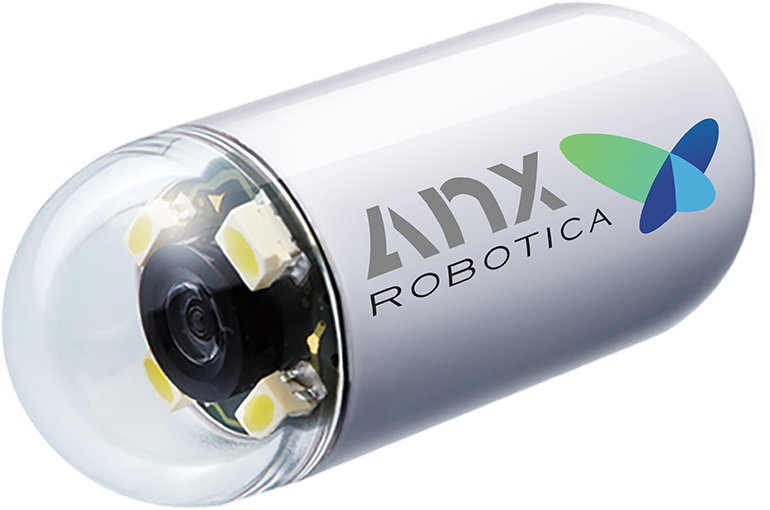The human digestive system is a complex network of organs responsible for breaking down food and absorbing nutrients. The stomach, in particular, plays a crucial role in this process by churning food and secreting digestive juices. In recent years, advancements in medical technology have led to the development of innovative devices to explore and visualize the digestive tract. One such breakthrough is the video capsule, a tiny camera-equipped capsule that can navigate through the stomach, providing valuable insights into its inner workings.
What is a Video Capsule?
A video capsule, also known as an endoscopic capsule, is a small, swallowable device that contains a camera, light source, battery, and wireless transmitter. The capsule is typically the size of a large pill, making it easy to swallow. Once ingested, it travels through the digestive system, capturing images and transmitting them to a receiver worn on a belt or carried by the patient. These images are then displayed on a monitor, allowing doctors to examine the digestive tract in real-time.

Navigating the Stomach
When the video capsule reaches the stomach, it begins its exploration of this vital organ. The capsule’s smooth, non-toxic surface ensures it passes through the stomach safely without causing any harm or discomfort to the patient. As it travels through the stomach, the capsule captures high-quality images of the stomach lining, revealing any abnormalities or potential issues that may be present. The images provide a comprehensive view of the stomach’s inner surface, helping doctors identify conditions such as ulcers, polyps, tumors, or inflammation.
Diagnostic Advantages
The use of video capsules to navigate the stomach offers several diagnostic advantages over traditional endoscopic procedures. Unlike conventional endoscopes, which require sedation and may cause discomfort, video capsules are minimally invasive and generally well-tolerated by patients. This makes them suitable for individuals who cannot undergo traditional endoscopy due to medical reasons or personal preferences.
Additionally, video capsules can provide a complete examination of the stomach, including areas that are difficult to access with conventional endoscopes. The capsule’s ability to capture high-resolution images enables doctors to detect early-stage gastric cancer, gastritis, or other diseases in their early stages, improving treatment outcomes.

Potential Applications
Video capsules have a wide range of applications in gastroenterology and can assist in diagnosing various conditions. They can help identify the cause of unexplained gastrointestinal bleeding, evaluate the severity of inflammatory bowel disease, and monitor the effectiveness of treatments for conditions such as Crohn’s disease or celiac disease. Furthermore, video capsules are useful for examining the effects of medications on the stomach lining, facilitating research and development in the pharmaceutical industry.
Advancements in Video Capsule Technology
Video capsule technology continues to advance, with ongoing research and development aimed at enhancing its capabilities. Newer versions of video capsules may include additional sensors to measure pH levels, temperature, or pressure within the stomach, providing further insights into digestive processes. These advancements enable doctors to gather more comprehensive data, leading to improved diagnoses and personalized treatment plans.
Read more: COVID-19 Measures Lead to a Significant Decrease in Cancer Detection
The video capsule represents a significant advancement in medical technology, revolutionizing the way doctors examine and diagnose conditions in the stomach. By offering a non-invasive and comprehensive view of the stomach’s inner workings, video capsules have become a valuable tool in gastroenterology. Their ability to navigate the stomach and capture high-resolution images has the potential to detect diseases at early stages, leading to more effective treatment outcomes. As technology continues to evolve, video capsules will likely play an even more significant role in the diagnosis and management of gastrointestinal disorders.



